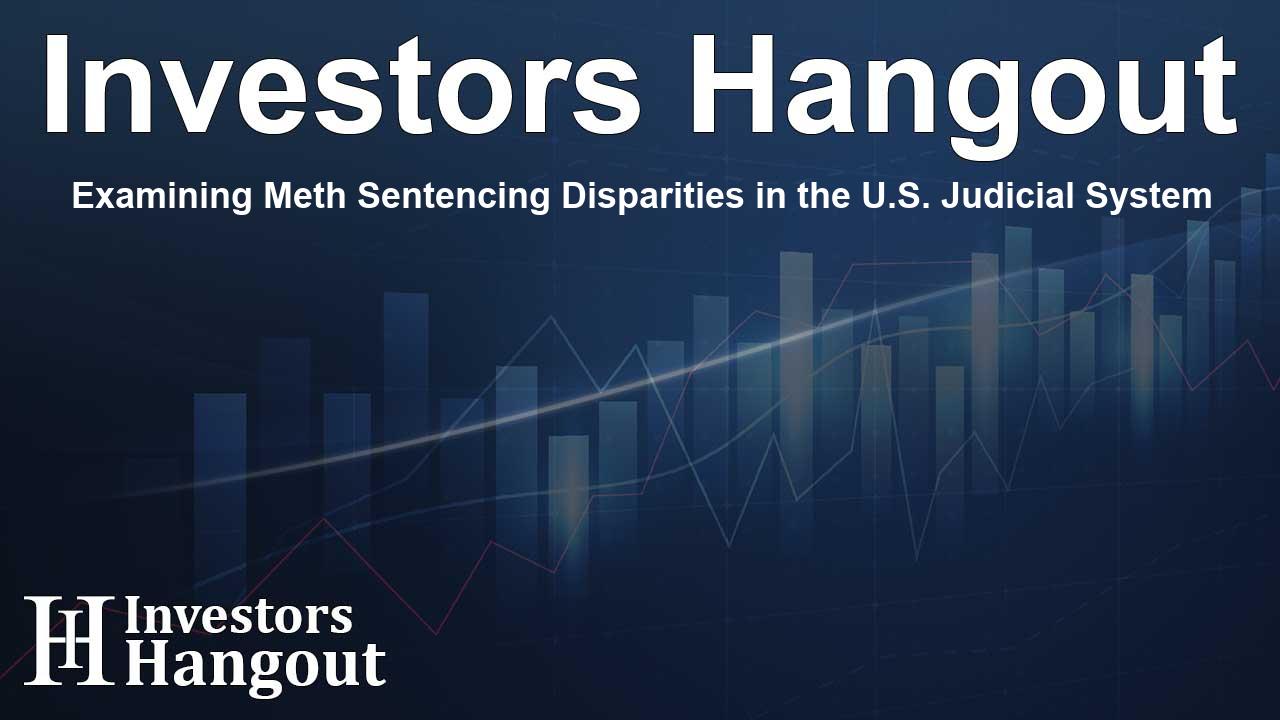Examining Meth Sentencing Disparities in the U.S. Judicial System

Uncovering the Truth about Meth Sentencing
The recent three-part series titled “Meth: The Prison Pipeline” brings attention to the severe sentencing disparities faced by individuals involved with methamphetamine in the United States. As the nation grapples with drug-related issues, this investigative work sheds light on how meth-related penalties often surpass those for other drugs, including more dangerous ones.
Investigative Insights from North Texas
Kevin Krause, a dedicated reporter, spent years delving into hundreds of meth-related cases across North Texas. By reviewing thousands of sentencing transcripts and attending dozens of hearings, Krause unearthed significant details about the current judicial approach to methamphetamine offenses. Alongside data journalist José Luis Adriano, they analyzed extensive crime data that revealed alarming trends in sentencing practices.
The Severity of Meth Sentences
The investigation highlighted how the median meth sentence in the Northern District of Texas averages over ten years, a stark contrast to the national median of six years. This information is eye-opening, particularly since it indicates that sentences for meth offenses are often harsher than those imposed on individuals convicted of violent crimes. Many first-time, non-violent offenders face decades in prison without the possibility of parole, creating a substantial financial burden for taxpayers as these laws cost up to $1.4 billion annually.
Historical Context of Meth Laws
The harsh meth laws currently in place have their roots in policies established during the 1980s and ‘90s when there was a nationwide shift towards tough-on-crime strategies. The series analyzes how these laws, while intended to combat drug issues, have instead led to increasingly severe penalties that do not fit the crime.
Examining Judicial Disparities
The series underscores the disparities in sentencing among different federal judicial districts. In the current legal landscape, individuals in the Dallas-Fort Worth area are subject to some of the longest sentences for meth offenses in the country. The need for reform is evident, as the series reveals that these policies have been slow to change, despite evolving perceptions of drug use and addiction.
The Impact of “Meth: The Prison Pipeline”
By uncovering these harsh realities, the series serves not only to inform the public but also to urge a reexamination of the current legal frameworks surrounding methamphetamine. The continuing debate surrounding drug sentencing is essential, particularly in light of the ongoing opioid crisis. The series aims to stimulate discussion about potential reforms that could lead to more equitable sentencing practices.
The Role of Media in Highlighting Drug Issues
The Dallas Morning News has a longstanding commitment to impactful journalism, and this series builds on that legacy. By making the series available online and in print, the publication ensures that this critical information reaches a wide audience. The series invites readers to reflect on the implications of these policies and consider the societal costs of sentencing individuals so harshly for drug offenses.
Engagement with the Community
As the broader community engages with the findings of this series, it raises questions about the effectiveness of current drug policies. Discussions are crucial for identifying changes that may better address the complexities of addiction and recovery. Community awareness and advocacy may become vital components in pushing for needed reforms.
Frequently Asked Questions
What is “Meth: The Prison Pipeline” about?
It is a three-part series from The Dallas Morning News investigating sentencing disparities for methamphetamine offenses compared to other drugs.
Who conducted the investigation into meth sentencing?
The investigation was led by reporter Kevin Krause and data journalist José Luis Adriano.
What did the series reveal about meth sentencing in Texas?
It highlighted that the median meth sentence in the Northern District of Texas exceeds ten years, significantly higher than the national average.
Why are meth sentences considered unfair?
The series points out that meth sentences are harsher than those for more lethal substances like fentanyl, raising questions about the fairness of these laws.
How can the community engage with this issue?
Community engagement can occur through discussions, advocacy for reform, and raising awareness about the impact of drug sentencing policies.
About The Author
Contact Evelyn Baker privately here. Or send an email with ATTN: Evelyn Baker as the subject to contact@investorshangout.com.
About Investors Hangout
Investors Hangout is a leading online stock forum for financial discussion and learning, offering a wide range of free tools and resources. It draws in traders of all levels, who exchange market knowledge, investigate trading tactics, and keep an eye on industry developments in real time. Featuring financial articles, stock message boards, quotes, charts, company profiles, and live news updates. Through cooperative learning and a wealth of informational resources, it helps users from novices creating their first portfolios to experts honing their techniques. Join Investors Hangout today: https://investorshangout.com/
The content of this article is based on factual, publicly available information and does not represent legal, financial, or investment advice. Investors Hangout does not offer financial advice, and the author is not a licensed financial advisor. Consult a qualified advisor before making any financial or investment decisions based on this article. This article should not be considered advice to purchase, sell, or hold any securities or other investments. If any of the material provided here is inaccurate, please contact us for corrections.
